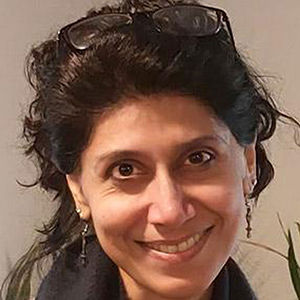Sadaf Ahmad is an Associate Professor of Anthropology at the Mushtaq Ahmad Gurmani School of Humanities and Social Sciences at the Lahore University of Management Sciences (LUMS), Lahore, Pakistan. She completed her Phd in Cultural Anthropology at Syracuse University in the United States in 2006 and then joined LUMS in Lahore, Pakistan.
Gender has always been a cross-cutting theme in Sadaf’s research. Her work is thematically diverse; however, it has consistently revolved around answering a set of broad questions. For instance, how does patriarchy sustain itself across different social institutions? How do women navigate, reinforce or resist patriarchal structures? What role do cultural narratives and institutions play in reinforcing gender norms?
In this context, her book Transforming Faith: A Story of Al-Huda and Islamic Revivalism Among Urban Pakistani Women (2009) explains why and how Al-Huda, an Islamic school for women founded in Islamabad in the late 1990s, resonated with upper-middle-class women, provided a concrete form to their faith, and how these students, in turn, have actively worked not only to transform themselves but also to reshape mainstream society based on a particular understanding of piety. Similarly, her research and publications on gender-based violence in Pakistani cinema explore how acts of violence—be they slaps or rape—serve to reinforce specific gendered ideas and perpetuate a rape culture in Pakistani society. Her research and writings on the indigenous women’s social movement AASHA, whose efforts culminated in the Protection against Harassment of Women at the Workplace Act, 2010, identify and analyse the effectiveness of AASHA’s strategies, deliberately designed to circumvent the shortcomings of foreign-funded projects and the radical, anti-state approach of previous civil society efforts.
Sadaf has been conducting research and writing on Pakistani female police officers since 2015. Her nationwide ethnographic research, based on participant observation and interviews with female officers, aimed to understand their experiences of working as a small minority in a male-dominated and “masculine” organisation across rank and region. Her work has been published in edited volumes and can be found in the journals Policing and Society and Gender and Society.
Her forthcoming book, Female Police Officers in Pakistan: Diverse Realities, Continuities and Change (I. B. Tauris), draws upon the complete body of her research to illustrate the diversity of female officers’ recruitment, roles, experiences, and career prospects across rank, cadre, police organisation, and region. It also explains why female officers’ combatting patriarchal challenges to make greater inroads into a masculine terrain cannot be conflated with the idea that this will automatically and radically transform the organisation itself.




